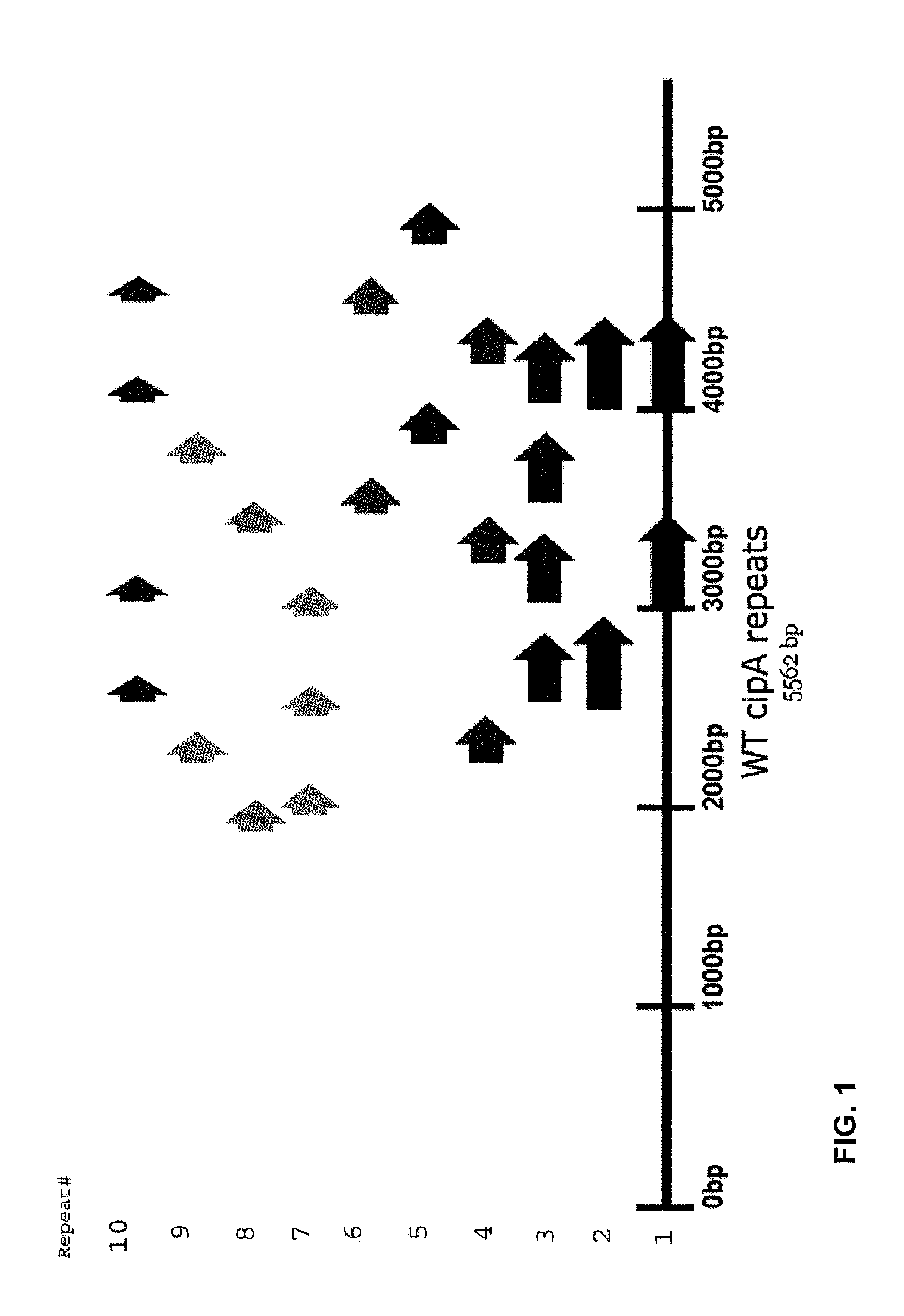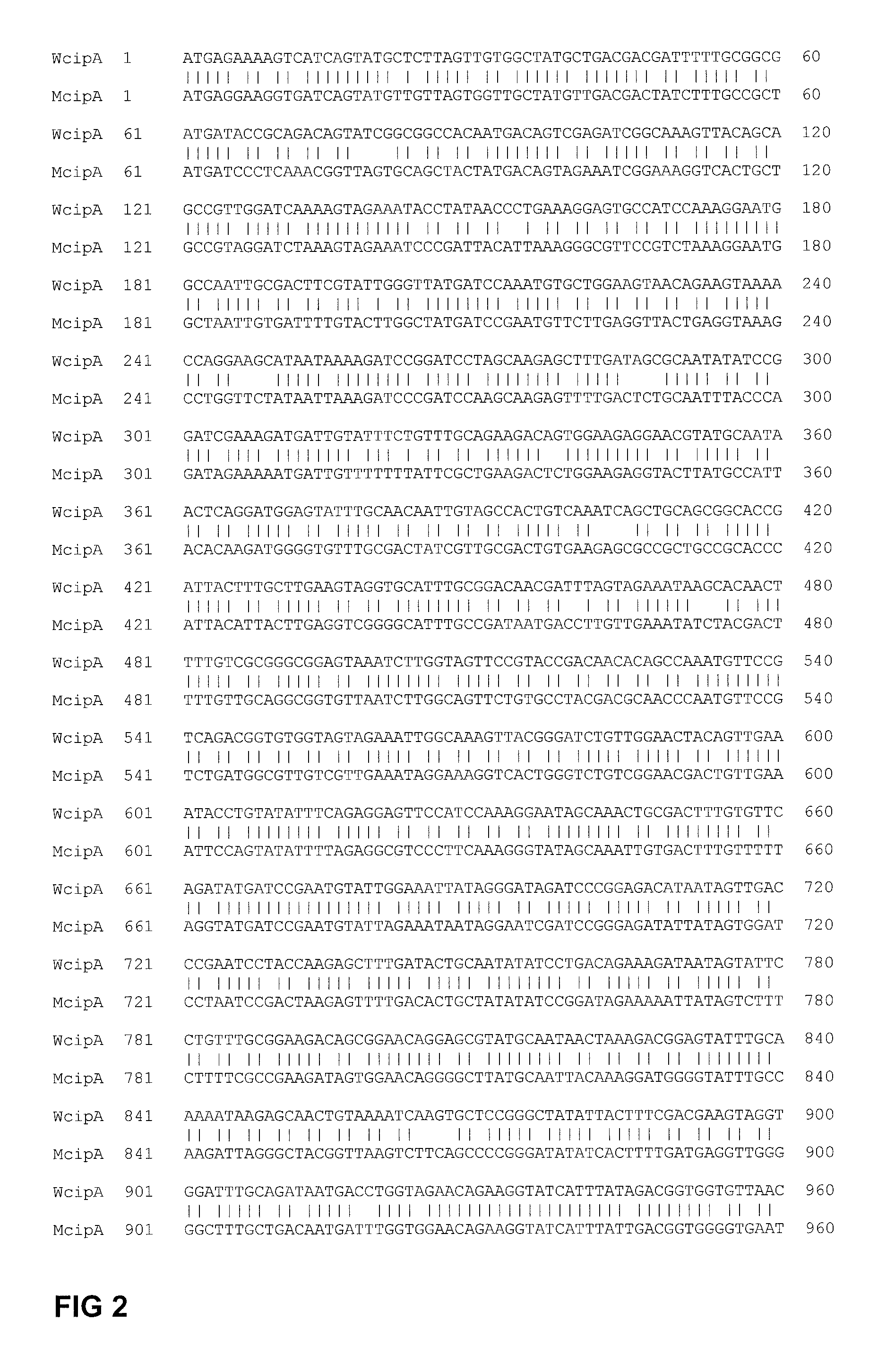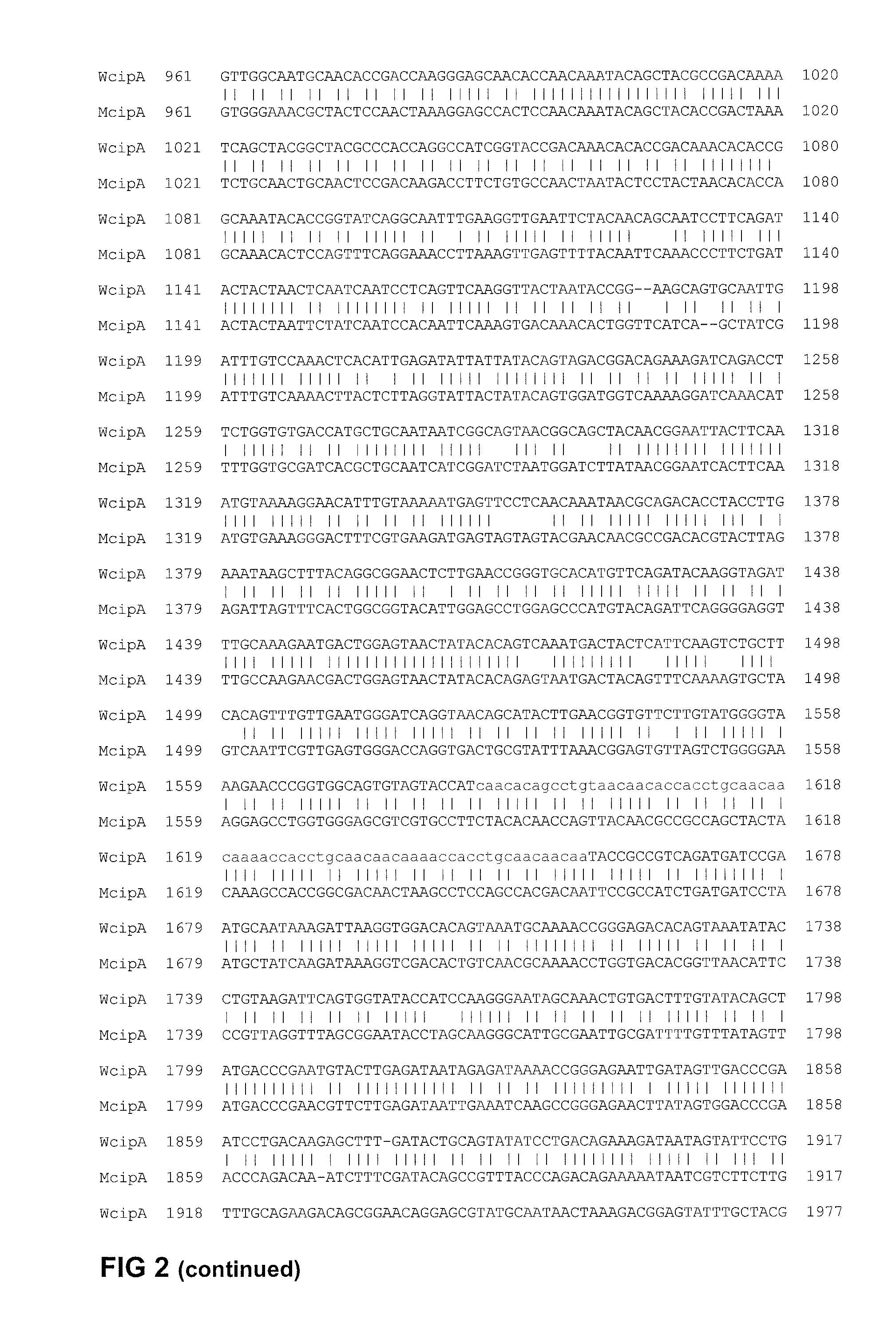Modified CIPA Gene From Clostridium Thermocellum for Enhanced Genetic Stability
a technology of clostridium thermocellum and cipa gene, which is applied in the field of biomass processing to produce ethanol, can solve the problems of unstable cipa gene and difficult cloning, errors in dna replication and polymerase chain reaction, and insufficient understanding of cellulosome expression
- Summary
- Abstract
- Description
- Claims
- Application Information
AI Technical Summary
Benefits of technology
Problems solved by technology
Method used
Image
Examples
example 1
Codon Shifting and Sequence Heterogenation of the cipA Gene from Clostridium thermocellum
[0055]Clostridium thermocellum is a thermophilic, anaerobic bacterium. The cipA gene of C. thermocellum may be isolated by standard cloning techniques. More specifically, the cipA gene can be amplified by PCR using primers that contain cloning sites. The amplified product may then be subcloned into a vector using standard recombinant DNA technology. PCR and / or restriction digestion by enzymes may be utilized to remove the repeated sequences.
[0056]In one aspect, synthetic oligonucleotides carrying one or more point mutations may be prepared and used as primers to amplify certain segments of the cipA gene. These amplified segments may then be annealed together to form a modified cipA gene lacking the major repeat sequences that are present in the wild-type cipA gene (SEQ ID No. 1).
[0057]In one preferred embodiment, the entire coding sequence of the wild-type cipA gene from Clostridium thermocellu...
example 2
Introduction of the Modified cipA Gene into Thermoanaerobacterium saccharolyticum
[0060]Thermoanaerobacterium saccharolyticum
[0061]Thermoanaerobacterium saccharolyticum is a thermophilic, anaerobic bacterial species. The strain JW / SL-YS485 (DSM 8691) was isolated from the West Thumb Basin in Yellowstone National Park, Wyoming. (Lui, S. Y., F. C. Gherardini, M. Matuschek, H. Bahl, J. Wiegel (1996) Cloning, sequencing, and expression of the gene encoding a large S-layer-associated endoxylanase from Thermoanaerobacterium sp strain JW / SL-YS485 in Escherichia coli. J. Bacteriol. 178: 1539-1547; Mai, V., J. Wiegel (2000) Advances in development of a genetic system for Thermoanaerobacterium spp: Expression of genes encoding hydrolytic enzymes, development of a second shuttle vector, and integration of genes into the chromosome. Appl. Environ. Microbiol. 66: 4817-4821, 2000.) It grows at a temperature range of 30-66° C. and a pH range of 3.85-6.5. It consumes a variety of biomass derived s...
example 3
Improved Genetic Stability of the mcipA Gene in Thermoanaerobacterium saccharolyticum as Compared to Wild-Type cipA Gene
[0066]The modified cipA gene (mcipA) synthesized by GeneArt as described in Example 1 was introduced into Thermoanaerobacterium saccharolyticum according to transformation methods described in Example 2. The plasmid carrying the mcipA gene was stable in the T. saccharolyticum host. Total genomic DNA was prepared from the transformed T. saccharolyticum strain and used as template to amplify the mcipA in a PCR reaction using primers that amplify the full-length cipA gene. Total genomic DNA was also prepared from a Clostridium thermocellum strain and used as template to amplify the wild-type cipA in a PCR. The PCR products were analyzed on agarose gels along with size markers. As shown in FIG. 3, while the PCR product of the modified cipA gene showed a clear and distinct band (lane 4), the PCR product of the wild-type cipA gene from C. thermocellum showed a long smear...
PUM
| Property | Measurement | Unit |
|---|---|---|
| temperature | aaaaa | aaaaa |
| pH | aaaaa | aaaaa |
| pH | aaaaa | aaaaa |
Abstract
Description
Claims
Application Information
 Login to View More
Login to View More - R&D
- Intellectual Property
- Life Sciences
- Materials
- Tech Scout
- Unparalleled Data Quality
- Higher Quality Content
- 60% Fewer Hallucinations
Browse by: Latest US Patents, China's latest patents, Technical Efficacy Thesaurus, Application Domain, Technology Topic, Popular Technical Reports.
© 2025 PatSnap. All rights reserved.Legal|Privacy policy|Modern Slavery Act Transparency Statement|Sitemap|About US| Contact US: help@patsnap.com



